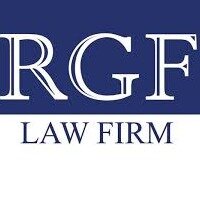Best Conveyancing Lawyers in San Juan
Share your needs with us, get contacted by law firms.
Free. Takes 2 min.
Free Guide to Hiring a Real Estate Lawyer
List of the best lawyers in San Juan, Puerto Rico
About Conveyancing Law in San Juan, Puerto Rico
Conveyancing refers to the legal process of transferring real estate ownership from one person to another. In San Juan, Puerto Rico, as in other jurisdictions, conveyancing is a vital component of buying, selling, or gifting property. The process not only ensures the legal transfer of title but also protects the parties involved by confirming that the property is free of liens, encumbrances, or ownership disputes. Puerto Rican law incorporates elements of both civil law and local legal traditions, making the conveyancing process distinct compared to other United States jurisdictions.
Why You May Need a Lawyer
Many individuals and businesses seek legal help during conveyancing for several reasons. A lawyer can help ensure that the property title is clear, drafts and reviews the necessary legal documents, oversees due diligence, and protects your interests throughout the transaction. You may need a lawyer if you are:
- Buying or selling residential or commercial property
- Transferring property due to inheritance or divorce
- Dealing with co-ownership or title disputes
- Facing mortgage or lien issues that affect the property
- Consulting on taxes and fees related to property transfer
- Handling transactions involving foreign entities or heirs
- Investing in real estate developments
Legal advice is especially important in San Juan due to the unique combination of commonwealth laws and civil law traditions that can impact the transaction.
Local Laws Overview
Conveyancing in San Juan, Puerto Rico, is primarily governed by the Puerto Rico Civil Code and local property laws. The process generally involves the following steps:
- Title Search - A review of public records to confirm the current owner, boundaries, and to ensure no outstanding debts, liens, or legal impediments exist.
- Drafting of the Deed - The legal document evidencing the transfer must be drafted in Spanish and executed before a Puerto Rican notary public, who is also a licensed attorney.
- Notarization - Notarial intervention is mandatory. Only attorneys who are notaries can authenticate property transfer deeds.
- Registration at the Registry of Property - Deeds are submitted to the Puerto Rico Registry of Property for official recording, which provides public notice of ownership and ensures the transfer is legally effective.
- Tax Payments - Transfers may trigger payment of stamp duties, registration fees, and municipal taxes. The correct payment of these fees is required for proper registration.
- Possession and Handover - Handover of physical possession typically follows registration.
The involvement of a qualified Puerto Rican notary-attorney is a legal requirement, not an option, and is unique compared to many states in the mainland U.S.
Frequently Asked Questions
What is the role of a notary in Puerto Rican property transfers?
In Puerto Rico, notarization is not just a formality. Only attorneys licensed as notaries can prepare and authenticate deeds for property transactions. The notary ensures that the transaction complies with legal requirements and submits the documents for registration.
Can an English-language deed be used in San Juan?
No, all property transfer deeds must be drafted in Spanish, as per local law. If you do not speak Spanish, your lawyer or notary can provide translations and explanations.
How long does the conveyancing process typically take?
The timeline can vary depending on factors such as due diligence, availability of title documents, and the speed of registration at the Registry of Property. In general, the process may take anywhere from several weeks to several months.
What taxes and fees should I expect to pay?
Typical costs include notary fees, stamp duties, registration fees, and municipal property taxes. The amount varies based on property value and location. Your attorney can provide a full breakdown before closing.
Is it necessary to do a title search?
Yes, a title search is a crucial part of the conveyancing process in Puerto Rico. It confirms the legal status of the property, ensures there are no encumbrances, and protects the buyer from unexpected claims or debts.
Can a foreigner purchase property in San Juan?
Yes, there are no restrictions on foreigners owning property in Puerto Rico. However, the process must follow Puerto Rican legal requirements, and all official documents are in Spanish.
What happens if there is a dispute over property boundaries?
Boundary disputes are resolved using official property plans and records held by the Registry of Property or municipalities. Legal intervention may be required, and a surveyor may be involved.
What are the risks of not using a lawyer in a conveyancing transaction?
Without legal representation, you risk unclear title, unforeseen liens, noncompliance with document requirements, and potential challenges regarding the validity of the transfer. Puerto Rico law requires notarial intervention, so a qualified lawyer is essential.
How is property inherited in Puerto Rico?
Puerto Rico follows forced heirship rules under its Civil Code. This means certain heirs (such as children and spouses) have a legal right to a portion of the estate, which must be factored into any property transfer after a death.
How is ownership proven once the process is complete?
Ownership is proven by a registered deed with the Registry of Property and a property title certificate. This documentation provides legal proof and public notice of ownership.
Additional Resources
If you need more information or assistance, consider contacting the following local entities:
- Puerto Rico Registry of Property (Registro de la Propiedad) - The official office managing title registration
- Puerto Rico Bar Association (Colegio de Abogados y Abogadas de Puerto Rico) - Helps locate accredited lawyers and notaries
- Municipality of San Juan Department of Permits and Land Use - For information about municipal approvals and tax rates
- Office of the Notary Inspector (Oficina del Inspector de Notarías, ODIN) - Supervises notarial practice in Puerto Rico
- Puerto Rico Department of Justice - For information on legal processes and consumer protection in real estate matters
Next Steps
If you are considering buying, selling, or otherwise transferring real estate in San Juan, Puerto Rico, the first recommended step is to consult with a licensed attorney who is also a notary public. Gather all relevant property documents, including prior deeds, title certificates, tax receipts, and identification documents. Clearly outline your goals and concerns to your legal advisor. Do not sign any contracts or documents without official legal guidance. Your lawyer will guide you through due diligence, draft and review documents, represent your interests at the closing, handle the notarial process, and ensure the property transfer is properly registered. This professional assistance is the best way to protect your investment and ensure a secure, legally compliant transaction in San Juan.
Lawzana helps you find the best lawyers and law firms in San Juan through a curated and pre-screened list of qualified legal professionals. Our platform offers rankings and detailed profiles of attorneys and law firms, allowing you to compare based on practice areas, including Conveyancing, experience, and client feedback.
Each profile includes a description of the firm's areas of practice, client reviews, team members and partners, year of establishment, spoken languages, office locations, contact information, social media presence, and any published articles or resources. Most firms on our platform speak English and are experienced in both local and international legal matters.
Get a quote from top-rated law firms in San Juan, Puerto Rico — quickly, securely, and without unnecessary hassle.
Disclaimer:
The information provided on this page is for general informational purposes only and does not constitute legal advice. While we strive to ensure the accuracy and relevance of the content, legal information may change over time, and interpretations of the law can vary. You should always consult with a qualified legal professional for advice specific to your situation.
We disclaim all liability for actions taken or not taken based on the content of this page. If you believe any information is incorrect or outdated, please contact us, and we will review and update it where appropriate.










